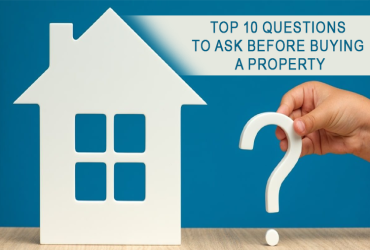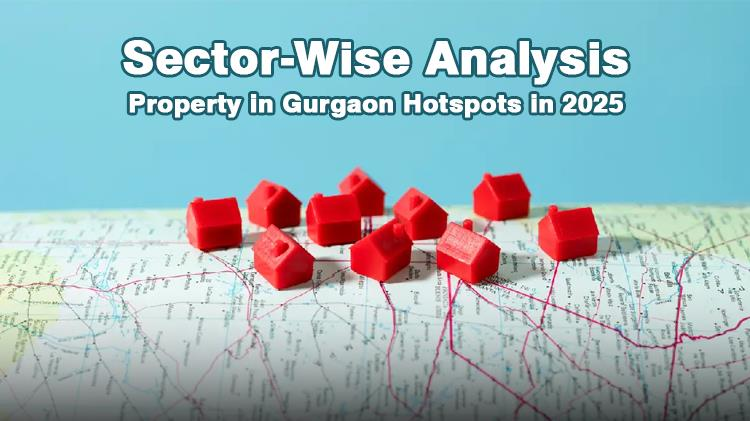
Buying a property is one of the most significant financial decisions you will ever make, it requires careful consideration. Asking the right questions can help you avoid pitfalls and ensure your investment aligns with your needs and goals. Below is a detailed guide to the top 10 questions you should ask before purchasing a property and insights into why each question matters.
1. Why is the property being sold?
Understanding the seller’s motivation can provide valuable insights into the property and its pricing. If the seller is in a hurry to move due to personal reasons or financial constraints, they may be more open to negotiating the price. Conversely, if the property has been on the market for a long time without much interest, it could signal underlying issues, such as neighborhood problems and structural concerns.
Follow-Up Questions:
-
How long has the seller lived in the property?
-
Are there any recurring issues with neighbors or local amenities?
2. How long has the property been on the market?
The duration a property has been listed can indicate its desirability and potential issues. A home that has been on the realestate market for months may be overpriced or have hidden defects. Conversely, a recently listed property might attract competitive offers if it is in high demand.
Why It Matters:
-
Properties lingering on the market often have room for negotiation.
-
It helps gauge whether you are entering a competitive bidding situation.
3. What is included in the sale?
Clarify what fixtures and fittings are part of the deal. Items such as curtains, kitchen appliances, or garden sheds might be included or excluded depending on the agreement. Knowing this upfront prevents surprises during move-in.
Key Considerations:
-
Are appliances like washing machines and refrigerators included?
-
What about outdoor features like fences or storage units?
4. What are the local amenities like?
The surrounding area significantly impacts your quality of life and property value. Investigate nearby hospitals, grocery stores, public transport options, and schools.
Questions To Ask:
-
Are there good schools in proximity?
-
How far is the nearest public transportation hub?
-
What is the crime rate in this area?
5. What are the monthly costs?
Beyond mortgage payments, you will need to budget for council taxes, utility bills, and maintenance costs. Understanding these expenses ensures you are financially prepared.
Specific Costs to Inquire About:
-
Council tax band.
-
Average monthly utility bills.
-
HOA fees (if applicable).
6. Are there any structural issues or repairs needed?
A thorough inspection of the property is essential to uncover potential problems such as foundation cracks, outdated plumbing systems, or dampness. Ask about any recent repairs and whether warranties are available for these fixes.
Red Flags to Look For:
-
Evidence of water damage or mold.
-
Cracks in walls or ceilings.
-
Age of major systems like HVAC and roofing.
7. Is this property energy efficient?
Energy efficiency impacts your utility bills and environmental footprint. Ask about insulation, window glazing, heating systems, and whether renewable energy sources like solar panels are installed.
What to Check:
-
Energy performance certificate (EPC) rating.
-
Age of heating systems.
-
Type of insulation used.
8. What is the neighborhood like?
The neighborhood can make or break your living experience. Visit at different times of day to assess noise levels, community vibe, and traffic patterns.
Things to Observe:
-
Noise levels during evenings.
-
Proximity to busy roads or industrial areas.
-
Community events or activities.
9. Are there any legal restrictions on modifications?
If you plan to renovate or expand your new home, check whether there are legal restrictions due to conservation areas or listed building status.
Ask About:
-
Zoning laws.
-
Restrictions on extensions or garden redesigns.
10. Is this property prone to environmental risks?
Environmental risks like wildfires and flooding can drastically affect your insurance premiums and safety. Check whether additional insurance is required for such risks.
Important considerations:
-
Is it located in a flood zone?
-
Has it ever been affected by natural disasters?
-
What type of insurance coverage is needed?
Conclusion
Buying a property involves more than just liking its appearance, it is about ensuring it meets your financial goals, long-term plans, and lifestyle needs. Asking these top 10 Questions to Ask Before Buying a Property with the knowledge and confidence as you navigate this complex.





3 Comments